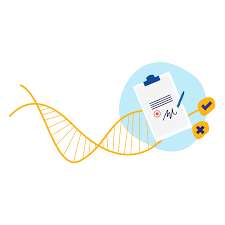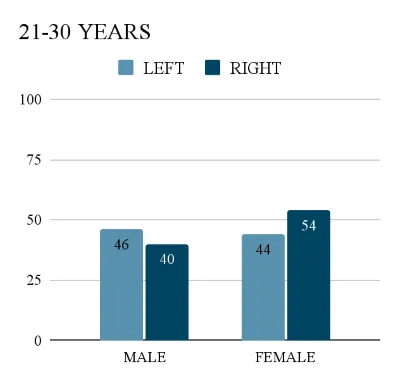The role of pretests

NEMA AI
When you indicate that a patient may be a candidate for genomic and inherited genetic testing, they will likely ask several questions.
What are pretests?
Pretest counseling is an opportunity to discuss the testing with your patient before they decide to proceed. It helps them understand the basic benefits, risks, and limits of the test. Even if you plan to send them to a specialist later, it is good to explain the basics early. This makes it easier for them to accept and understand the results when they come. A good early talk also helps doctors give the right care at the right time.
Pretests can be done on paper or on a computer. They may use different types of questions. Some questions are multiple choice, some ask you to “pick all that apply,” and some ask how much you agree or disagree with a statement.
Pretest questions are usually given before the start of a lesson or activity. Sometimes pretest questions are added during learning, but they should always come before the lesson they are testing.
In some cases, pretests also mean collecting information about how a person, or even a whole group, is doing before any treatment starts.

The Role of Pre-Tests in Early Screening
Getting Preliminary Knowledge
Pretests help counselors find possible problems early. This is important because early help can lead to better results. For example, when behavioral problems or delays are found early, plans can be made to support the person right away.
Recognizing Cognitive Issues
Pretests are checks or tests that are done before a complete check-up to find out if a person might have issues with thinking and learning. They can lead to early signs of difficulty with learning, paying attention. One such example is the pediatric symptom checklist for children. It can help doctors find out if a child is having problems with their feelings, in school, how they are performing, or with daily activities. Discovering these concerns early means doctors can decide what to do next, such as taking a closer look and helping right away. Knowing patterns of behavior can also help to understand the way a person reacts in different situations. They might tell that with symptoms such as acting before thinking, and anger. By knowing these things, we are better able to provide the right help, such as therapy. One common test for this is the Denver Developmental Screening Test. It takes a child’s emotional development, language, and skills to assess how the child is developing as a whole.
Why early detection matters?
It’s really important to find problems early. Conditions such as ADHD, autism, and dementia can make a world of difference. It would enable timely intervention from the early stage. For instance, if one’s young kid is diagnosed with ADHD, then they can begin therapies quickly to help with focus. Such help can turn a child’s learning and daily life much better.
It also helps with developmental support. A child’s ability to learn to walk, talk, or play is affected by conditions. Like autism, cerebral palsy. If these conditions are detected early, children can begin therapies and become part of programs. These aid them in learning and growing more successfully.
Knowing problems early also helps families secure health and school support early. It permits doctors and teachers to prepare. More kids get what they need without problems becoming more difficult to address; it’s more cost-effective.
In the end, pretests are more than just checks; they are the start of finding out what a person needs. They can unlock a door to ensure timely care, a better quality of life, as well as provide families and professionals with the information necessary to plan for the future.

What Pretests Allow
Pretests allow for early problem identification and provide:
Early Referrals: People can be referred to specialists early enough so they get the proper care.
Personalized Treatment Plans: Doctors can create treatment plans according to the person’s needs.
Monitoring Progress: Frequent checks allow easier tracking of progress and adjusting treatment when needed.
How it helps Counsellors
Pretest results provide counselors with relevant information to:
Assess: Determine where further assessments are needed.
Create Intervention Solutions: Need to create programs that are modified to fit every person's unique requirements.
Monitoring Impact: Look into an intervention's efficacy over time.
Enhances insight: Gains a better perspective of the person’s shortcomings and assets.
Facilitation of Clinical Judgments: Enhances information gathered from observations and interviews.
Assures Comprehensive Assessment: Takes into account topics that conventional evaluations could miss.
Particular Areas: For example, motor skills, memory, or concentration.
Severity Levels: Showing how serious the problem is.
Possible Co-occurring Conditions: Finding additional places that could need care.

Considerations
Pretests are screening tools, not diagnostic tools; hence, they are not a final diagnosis.
Professional Interpretation Is Necessary. Trained specialists should interpret the results.
Follow-up Evaluations Needed: Additional assessments are required to validate any worries.
Maintaining Confidentiality: Individual privacy protection is of utmost importance.
Feedback is sensitively delivered: Express findings in a kind and nonjudgmental way.
Obtaining Informed Consent: People should be informed about the policy and the goal.
How NEMA AI can help
Nema AI is making it easier to check for brain and learning problems early. It gives parents, teachers, and doctors a simple way to understand what is going on. Nema AI uses a quick, gentle scan of the brain. It is safe and does not hurt. In just a few minutes, it shows brain patterns that normal paper tests cannot see. This means small problems can be found early, before they show up in daily life. When found early, help can start sooner.
For children with ADHD, Nema AI can spot things like short attention or bursts of energy. This gives doctors ideas on how to start helping. Children who have autism, we can see struggle with not making friends, handling sounds, or planning daily tasks. For adults at risk of memory loss or dementia, Nema AI can catch small changes in thinking. This means they can see a doctor faster and try things that may slow down the problem.
Nema AI is not only for doctors. Parents and teachers can also use it. The test shows a clear picture of a person’s strengths and where they need help. It is easier for parents to choose the right care at home and for teachers to support learning in school. The test is quick, easy, and stress-free. It is also kind and fair, showing both what someone does well and what needs support. It never makes people feel bad or judged.
The goal of Nema AI is to turn brain signals into simple advice that families and helpers can use. It is not about looking at the brain, but about giving real ideas that make life better. For example, it can warn parents early if a child is having trouble paying attention or learning. This way, support can start right away. Early help can change a child’s future and improve life for adults, too.
Booking a test with Nema AI is simple. Families and caregivers can go to the website and pick a time that works best. During the visit, an expert will explain everything step by step and answer questions. The test is calm and safe, so both kids and adults feel comfortable.
You can book a consultation in Bangalore, Delhi, and Mumbai.
